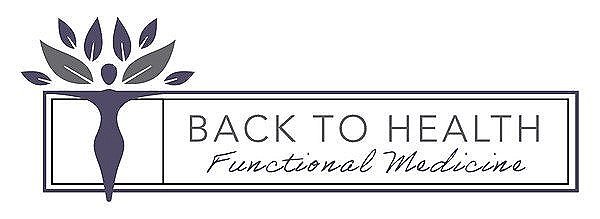🦋 Nutrient Deficiencies and Hashimoto’s: Why They Matter and How to Begin Healing
If you’ve been diagnosed with Hashimoto’s (or suspect you’re struggling with thyroid imbalance), you may be focused on hormone levels — but what about the nutrients that fuel your thyroid?
Your thyroid is a nutrient-hungry gland. Without the right vitamins and minerals, it simply can’t function properly — no matter how perfect your medication dose is.
And here’s the thing:
Most women with Hashimoto’s are missing several of these key nutrients!
Why? Chronic inflammation, poor gut absorption, restrictive diets, and stress can all deplete nutrient stores.
Let’s break down the most common nutrient deficiencies in Hashimoto’s, what they do, how they affect your symptoms — and most importantly, how to begin healing.
The Top Nutrients Your Thyroid Needs:
(click here for the products I use)
Role: Converts T4 to T3, lowers thyroid antibodies, protects the thyroid from oxidative stress
Deficiency Signs: Increased TPO antibodies, sluggish thyroid function, hair thinning
Best Food Sources: Brazil nuts (1–2 daily), wild salmon, eggs, sunflower seeds
Supplement Tip: Look for selenium methionine form; start with 100–200 mcg/day
Role: Required for T3 conversion and immune regulation
Deficiency Signs: Hair loss, poor wound healing, frequent colds, poor taste/smell
Best Food Sources: Grass-fed beef, pumpkin seeds, lentils, oysters
Supplement Tip: Choose zinc picolinate or zinc bisglycinate; don’t exceed 40 mg/day without supervision
Role: Regulates immune system and autoimmune activity
Deficiency Signs: Fatigue, mood swings, recurrent illness, bone pain
Best Sources: Sunlight, cod liver oil, fatty fish, fortified mushrooms
Supplement Tip: Use D3 with K2 for optimal absorption; aim for serum levels of 60–90 ng/mL
Role: Supports energy, neurological function, and methylation
Deficiency Signs: Brain fog, fatigue, tingling hands/feet, low mood
Best Food Sources: Liver, grass-fed meats, sardines, eggs
Supplement Tip: Methylcobalamin or adenosylcobalamin are ideal forms for absorption (higher bioavailability)
Role: Calms the nervous system, supports adrenal health, reduces inflammation
Deficiency Signs: Muscle cramps, sleep issues, anxiety, constipation
Best Sources: Spinach, pumpkin seeds, black beans, avocado, dark chocolate
Supplement Tip: Use magnesium glycinate or magnesium threonate (especially for anxiety/sleep). I love taking RelaxMax in the evenings before bed zzz!
Role: Needed for thyroid hormone synthesis and oxygen delivery to cells
Deficiency Signs: Hair shedding, cold hands/feet, fatigue, shortness of breath
Best Food Sources: Organ meats, shellfish, legumes, leafy greens (with vitamin C for absorption)
Supplement Tip: Test ferritin, not just serum iron. Aim for 70–100 ng/mL for optimal thyroid support
7. Iodine (use under functional provider supervision only)
Role: Essential for thyroid hormone production and protects thyroid from toxin damage
⚠️ Caution: In Hashimoto’s, excessive iodine without balancing selenium can worsen autoimmunity
Safe Food Sources: Seaweed (sparingly), iodized salt, seafood
Supplement Tip: Only use under supervision
How to Know What You’re Missing:
Functional lab testing is crucial.
Most standard labs (or doctors) don’t evaluate the full picture!
Ask your provider for (functional providers should know to order these):
- Vitamin D (25(OH)D)
- Vitamin B12 and MMA (methylmalonic acid)
- Zinc and Copper
- Magnesium RBC
- Iron Panel + Ferritin
- Selenium (or proxy markers like GSH-peroxidase)
- Iodine
How to Begin Healing:
You don’t have to guess. You can nourish your body intentionally.
Start Here:
- Eat a nutrient-dense, anti-inflammatory diet:
Include wild-caught seafood, grass-fed meats, leafy greens, colorful vegetables, and healthy fats.
- Replenish with high-quality supplements tailored to your lab results. (I use Fullscript to recommend professional-grade options - CLICK HERE to access my recommendations)
- Heal your gut to improve absorption — even the best diet won’t help if you’re not digesting properly.
- Work with a functional provider to guide the process, order appropriate tests, and avoid over- or under-supplementation.
Final Thoughts
If you’re dealing with Hashimoto’s (or suspect you are) and feeling tired, foggy, or inflamed, nutrient deficiencies could be at the core of your symptoms.
You don’t have to live in survival mode.
You can rebalance your body, replenish what’s missing, and start to feel like yourself again — with the right support.
Need help identifying and correcting your deficiencies? I’m here to help!
Click here to schedule a complimentary consultation with me (Dr. Anya) to begin your root cause investigation, customized recommendations, and personalized support.
———
Disclaimer:
The information provided in this blog post is for educational and informational purposes only and is not intended as medical advice, diagnosis, or treatment. The content reflects the opinion and personal experience of Dr. Anya, a holistic functional medicine practitioner, and is not a substitute for professional medical advice from your healthcare provider.
Always consult your physician or qualified health professional before starting any new dietary supplements, protocols, or lifestyle changes, especially if you have a known medical condition, take prescription medications, or are pregnant or breastfeeding.
Reading or using this content does not establish a doctor-patient relationship. Results may vary based on individual health status and compliance with recommended strategies.
Dr. Anya and her affiliates disclaim any liability for any adverse effects resulting directly or indirectly from the use or application of the information presented herein.
